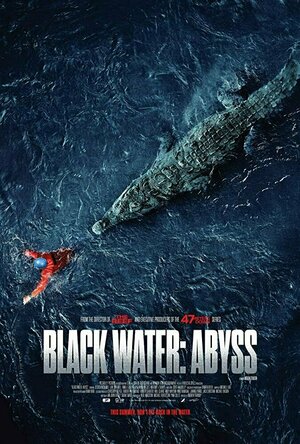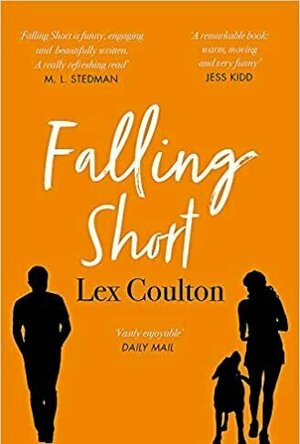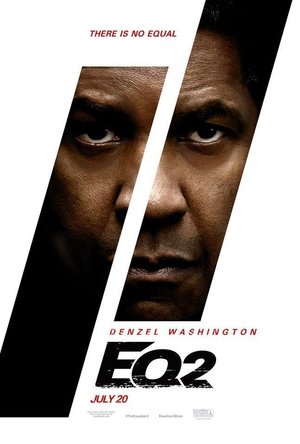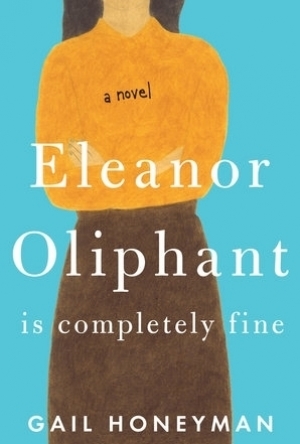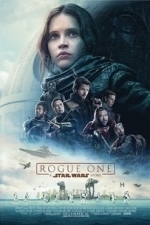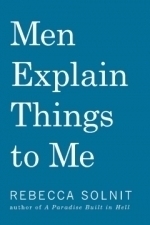Search
Search results
Emma @ The Movies (1786 KP) rated Black Water: Abyss (2020) in Movies
Aug 22, 2020
I don't know how I've never seen Black Water, but I saw the trailer for Abyss and it caught my eye so I'll be going back to check the first one out as they're usually better.
When Cash finds a cave while out searching for two missing hikers he invites his friends to explore it with him. Deep in the cave system they come upon a cavern, as they look around they're suddenly hit by a torrent of water and become trapped by the rising water... and they might not be alone.
Where to start... I love creature features, at this point that's common knowledge, but there are some that make me a little sad. Black Water: Abyss might be one of those. It has all the potential but somehow it wasn't engaging, perhaps it took itself a little too seriously?
It suffered from excessive length, or rather the perception of length as it had a runtime of just 1 hour 38 minutes. It felt a lot longer. 98 minutes would be a perfect length for this sort of film but this dragged on and on.
There's a tried and tested formula: group gets trapped, there's peril, group have to escape, most die or at least get maimed. 47 Meters Down, Deep Blue Sea, Crawl... I won't go on. It's a simple story that so many films before have done, it shouldn't have been hard to recreate.
The actors are all good. Luke Mitchell (Blindspot) and Jessica McNamee (The Meg) were both faces I recognised and their previous roles sat positively with me. They play Jen and Eric who are a happy couple on the surface but the tension builds, they work well together. Anthony J Sharpe as Cash givens off some heavy Murdock vibes, the slightly crazy character did lighten everything a little but I'm not sure if that's a good or a bad thing in the long run. Our other couple are Yolanda and Viktor (Amali Golden and Benjamin Hoetjes), they're made to be the opposites of Jen and Eric seemingly one particular line of dialogue in the middle. They didn't have the same presence but that wasn't really necessary.
CGI crocs. I'll give them some credit for the fact that there were a couple of shots where I couldn't say if they were CG, real or practical. For the most part though I wasn't excited by what I saw, there was a lot of eye and snout shots or just ripples in the water. The bigger shots were chaotic and mainly obscured by fast motion and water, when you do get a good view it doesn't gel with anything around it, the colourings in particular seem to be inconsistent with the light inside the cave.
There are a lot of leading shots that should help with suspense, but somehow don't. They're typical off-set characters with open space that make you think a croc is going to jump out, classic right? But it seems like they made a concerted effort to combat predictability by putting a few of those shots together and not using the first one for the scare... which had a negative effect for me. Part of the fun of these films is that you know something is coming and you can get a gratifying win from guessing what's going to happen, after a few thwarted attempts at that it became really frustrating and less than satisfying to watch.
Despite a lot of disappointment this isn't a bad film, swapping some of the drama for more action and giving the viewers a few "wins" would have easily made the runtime a bit more bearable. I did get a solid laugh out of it towards the end, perhaps it missed its calling as a comedy.
Originally posted on: https://emmaatthemovies.blogspot.com/2020/08/black-water-abyss-movie-review.html
When Cash finds a cave while out searching for two missing hikers he invites his friends to explore it with him. Deep in the cave system they come upon a cavern, as they look around they're suddenly hit by a torrent of water and become trapped by the rising water... and they might not be alone.
Where to start... I love creature features, at this point that's common knowledge, but there are some that make me a little sad. Black Water: Abyss might be one of those. It has all the potential but somehow it wasn't engaging, perhaps it took itself a little too seriously?
It suffered from excessive length, or rather the perception of length as it had a runtime of just 1 hour 38 minutes. It felt a lot longer. 98 minutes would be a perfect length for this sort of film but this dragged on and on.
There's a tried and tested formula: group gets trapped, there's peril, group have to escape, most die or at least get maimed. 47 Meters Down, Deep Blue Sea, Crawl... I won't go on. It's a simple story that so many films before have done, it shouldn't have been hard to recreate.
The actors are all good. Luke Mitchell (Blindspot) and Jessica McNamee (The Meg) were both faces I recognised and their previous roles sat positively with me. They play Jen and Eric who are a happy couple on the surface but the tension builds, they work well together. Anthony J Sharpe as Cash givens off some heavy Murdock vibes, the slightly crazy character did lighten everything a little but I'm not sure if that's a good or a bad thing in the long run. Our other couple are Yolanda and Viktor (Amali Golden and Benjamin Hoetjes), they're made to be the opposites of Jen and Eric seemingly one particular line of dialogue in the middle. They didn't have the same presence but that wasn't really necessary.
CGI crocs. I'll give them some credit for the fact that there were a couple of shots where I couldn't say if they were CG, real or practical. For the most part though I wasn't excited by what I saw, there was a lot of eye and snout shots or just ripples in the water. The bigger shots were chaotic and mainly obscured by fast motion and water, when you do get a good view it doesn't gel with anything around it, the colourings in particular seem to be inconsistent with the light inside the cave.
There are a lot of leading shots that should help with suspense, but somehow don't. They're typical off-set characters with open space that make you think a croc is going to jump out, classic right? But it seems like they made a concerted effort to combat predictability by putting a few of those shots together and not using the first one for the scare... which had a negative effect for me. Part of the fun of these films is that you know something is coming and you can get a gratifying win from guessing what's going to happen, after a few thwarted attempts at that it became really frustrating and less than satisfying to watch.
Despite a lot of disappointment this isn't a bad film, swapping some of the drama for more action and giving the viewers a few "wins" would have easily made the runtime a bit more bearable. I did get a solid laugh out of it towards the end, perhaps it missed its calling as a comedy.
Originally posted on: https://emmaatthemovies.blogspot.com/2020/08/black-water-abyss-movie-review.html
Ivana A. | Diary of Difference (1171 KP) rated Falling Short in Books
Oct 2, 2020
Contains spoilers, click to show
When I first found out about Falling Short, written by Lex Coulton, the blurb promised to be ''fresh, funny and life-affirming''. I am sorry, but no. That is not correct. This book was none of those things. It wasn’t bad at all, but I would prefer describing it as a slow-paced, and confusingly complex in an unsatisfying way.
About the book:
Frances Pilgrim’s father went missing when she was five, and ever since all sorts of things have been going astray: car keys, promotions, a series of underwhelming and unsuitable boyfriends . . . Now here she is, thirty-bloody-nine, teaching Shakespeare to rowdy sixth formers and still losing things.
But she has a much more pressing problem. Her mother, whose odd behaviour Frances has long put down to eccentricity, is slowly yielding to Alzheimer’s, leaving Frances with some disturbing questions about her father’s disappearance, and the family history she’s always believed in. Frances could really do with someone to talk to. Ideally Jackson: fellow teacher, dedicated hedonist, erstwhile best friend. Only they haven’t spoken since that night last summer when things got complicated . . .
As the new school year begins, and her mother’s behavior becomes more and more erratic, Frances realizes that she might just have a chance to find something for once. But will it be what she’s looking for?
My thoughts:
I am usually good at explaining why I don’t like a certain book, or why I feel the way I feel, and believe me, with this one, I have spent two days and 6 sittings in front of this draft (now published post) to try and write about it. So I am doing my best now…
First of all, there has to be something about a certain book to make me want to read it. With this one – there were two things:
I love romance and intrigue, and the blurb promised two people not really talking to each other, but sparks flying around… so yes, that got me.
The Alzheimer’s disease – as a person that has worked with people suffering from Dementia and Alzheimer’s, this subject is very close to my heart. I couldn’t miss this book for this reason.
Now – the romance part disappointed me, as there was no romance. No romance at all. Unless, of course, you count as a romance a person in their mid-forties sleeping around with drunk teens, and is then too complicated of a character to even realise who he loves, and why, and the moment he does, he still has no idea what to do with that information.
The other disappointment I had was that I expected to read about the Alzheimer’s, and not only that they weren’t there, but also some of the symptoms mentioned were not correct at all. There were only sex relationships and sex scenes, and that was supposed to define their relationship in the end. Not realistic at all.
Even though it seems that we follow Frances’s story throughout, we actually follow Jackson’s story as well. Their characters were too complicated and confusing for me, and it let me to now feel nor care about them at all. I honestly cared about Frances’s dog the most in this book.
The plot wasn’t perfect – there were times when the information given didn’t match.
[SPOILER ALERT]
The scene how Frances searches on Google to find the address of her dad. We are then told that she found out his address through Jean. Which one is it, then?
I am actually quite sad that I didn’t enjoy this book, but I will still be curious about new works from Lex Coulton, because, somehow, I really liked her writing style, despite all the flaws.
About the book:
Frances Pilgrim’s father went missing when she was five, and ever since all sorts of things have been going astray: car keys, promotions, a series of underwhelming and unsuitable boyfriends . . . Now here she is, thirty-bloody-nine, teaching Shakespeare to rowdy sixth formers and still losing things.
But she has a much more pressing problem. Her mother, whose odd behaviour Frances has long put down to eccentricity, is slowly yielding to Alzheimer’s, leaving Frances with some disturbing questions about her father’s disappearance, and the family history she’s always believed in. Frances could really do with someone to talk to. Ideally Jackson: fellow teacher, dedicated hedonist, erstwhile best friend. Only they haven’t spoken since that night last summer when things got complicated . . .
As the new school year begins, and her mother’s behavior becomes more and more erratic, Frances realizes that she might just have a chance to find something for once. But will it be what she’s looking for?
My thoughts:
I am usually good at explaining why I don’t like a certain book, or why I feel the way I feel, and believe me, with this one, I have spent two days and 6 sittings in front of this draft (now published post) to try and write about it. So I am doing my best now…
First of all, there has to be something about a certain book to make me want to read it. With this one – there were two things:
I love romance and intrigue, and the blurb promised two people not really talking to each other, but sparks flying around… so yes, that got me.
The Alzheimer’s disease – as a person that has worked with people suffering from Dementia and Alzheimer’s, this subject is very close to my heart. I couldn’t miss this book for this reason.
Now – the romance part disappointed me, as there was no romance. No romance at all. Unless, of course, you count as a romance a person in their mid-forties sleeping around with drunk teens, and is then too complicated of a character to even realise who he loves, and why, and the moment he does, he still has no idea what to do with that information.
The other disappointment I had was that I expected to read about the Alzheimer’s, and not only that they weren’t there, but also some of the symptoms mentioned were not correct at all. There were only sex relationships and sex scenes, and that was supposed to define their relationship in the end. Not realistic at all.
Even though it seems that we follow Frances’s story throughout, we actually follow Jackson’s story as well. Their characters were too complicated and confusing for me, and it let me to now feel nor care about them at all. I honestly cared about Frances’s dog the most in this book.
The plot wasn’t perfect – there were times when the information given didn’t match.
[SPOILER ALERT]
The scene how Frances searches on Google to find the address of her dad. We are then told that she found out his address through Jean. Which one is it, then?
I am actually quite sad that I didn’t enjoy this book, but I will still be curious about new works from Lex Coulton, because, somehow, I really liked her writing style, despite all the flaws.
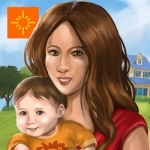
Virtual Families 2: Our Dream House
Games and Entertainment
App
*Now Downloaded 11 Million Times!! Well played, people!* *Whoa! You made us #1 in Simulation!...
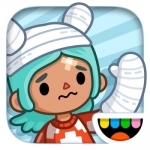
Toca Life: Hospital
Education and Entertainment
App
Experience the excitement of a busy medical center with Toca Life: Hospital! Welcome newborn babies...

Kids Learning - Photo Touch Concepts
Education and Games
App
"Learning concepts has never been this fun. My kids and students love this game!" Kathy Fox ...
Bob Mann (459 KP) rated The Equalizer 2 (2018) in Movies
Sep 28, 2021
A “Good Guy” meting out justice in a bad way.
There’s something really satisfying about seeing our ‘hero’ Robert McCall giving bad ‘uns a bloody nose (and far worse) as immediate punishment for a crime committed. My parent’s pre-war generation would wax lyrical about the days when police officers or teachers could give a kid a “good box around the ears” as a lesson for a minor infringement. (“Ah, the good old days…. That’ll learn ‘im”!). But equally there’s also the queasy feeling here that this is a vigilante being judge, jury and executioner. Thank GOODNESS then that it’s Denzel Washington and he’s OBVIOUSLY a good guy that will never get it wrong!
Washington returns here as the righter of wrongs, now working as a Lyft driver in Boston (clearly Uber either lost the bidding war or they were not considered to be as cool a brand anymore). Through his job he crosses paths with various troubled souls and is often able to help: sometimes with just an encouraging word; sometimes with more physical activity! By way of validating his good guy credentials, he also takes under his wing Miles (Ashton Sanders) – a local black kid at risk of being dragged into the Boston gang scene.
But this is all window-dressing for the main plot, involving bad guys (for reasons that escaped me) tidying up a lot of CIA loose ends in Brussels in a very brutal way. In charge of the investigation is Robert’s ex-boss Susan Plummer (Melissa Leo) and to help out further Robert has to ‘reappear’ to his ex-partner Dave York (Pedro Pascal). As in the first film, events lead to an explosive western-style showdown.
Directed again by Antoine Fuqua, the film oozes style from the impressive opening shots of a Turkish train, where the cinematography by Bourne-regular Oliver Wood is exceptional. The action scenes are well-executed, and includes a superb science experiment that will puzzle any viewer who thinks “hang on a minute – flour doesn’t burn”!
Reading again my review of the original film, I went off on a rant about extreme screen violence in sub-18 certificate films. There is certainly – as the British film censors (the BBFC) describe it – “strong violence” in this film, with some pretty brutal murder scenes. If anything though I thought the violence was a little less gratuitous this time around, which I welcome.
Denzel is the greatest asset of this film though. He acts up a hurricane (literally), and without his calm and powerful presence at the heart of the film, this would just be A.N.Other generic thriller. It’s also great that this time around the excellent Melissa Leo gets more screen time, as does her husband played by Bill “Independence Day” Pullman. (Is it just me that gets Mr Pullman confused with the late Mr Paxton? I spent all of this film thinking “Oh how sad” though all his scenes before I realised I was grieving for the wrong guy!). In terms of mistaken identity, this film has another in that a key villain Resnik looks far too much like Mark Wahlberg, but is actually Canadian actor Jonathan Scarfe.
Where the film stumbled for me was in having too many parallel “good deed” sub-plots. One in particular – you’ll know the one – feels completely superfluous, beggars belief and could have been excised completely for the DVD deleted scenes.
Do you need to have seen the first film? No, not really. There is exposition about McCall’s back-story, but if this was covered in the first film then I had completely forgotten it. It certainly didn’t detract from this as a stand-alone film.
A cut-above the norm, Washington’s solid performance makes this an entertaining night out at the flicks.
Washington returns here as the righter of wrongs, now working as a Lyft driver in Boston (clearly Uber either lost the bidding war or they were not considered to be as cool a brand anymore). Through his job he crosses paths with various troubled souls and is often able to help: sometimes with just an encouraging word; sometimes with more physical activity! By way of validating his good guy credentials, he also takes under his wing Miles (Ashton Sanders) – a local black kid at risk of being dragged into the Boston gang scene.
But this is all window-dressing for the main plot, involving bad guys (for reasons that escaped me) tidying up a lot of CIA loose ends in Brussels in a very brutal way. In charge of the investigation is Robert’s ex-boss Susan Plummer (Melissa Leo) and to help out further Robert has to ‘reappear’ to his ex-partner Dave York (Pedro Pascal). As in the first film, events lead to an explosive western-style showdown.
Directed again by Antoine Fuqua, the film oozes style from the impressive opening shots of a Turkish train, where the cinematography by Bourne-regular Oliver Wood is exceptional. The action scenes are well-executed, and includes a superb science experiment that will puzzle any viewer who thinks “hang on a minute – flour doesn’t burn”!
Reading again my review of the original film, I went off on a rant about extreme screen violence in sub-18 certificate films. There is certainly – as the British film censors (the BBFC) describe it – “strong violence” in this film, with some pretty brutal murder scenes. If anything though I thought the violence was a little less gratuitous this time around, which I welcome.
Denzel is the greatest asset of this film though. He acts up a hurricane (literally), and without his calm and powerful presence at the heart of the film, this would just be A.N.Other generic thriller. It’s also great that this time around the excellent Melissa Leo gets more screen time, as does her husband played by Bill “Independence Day” Pullman. (Is it just me that gets Mr Pullman confused with the late Mr Paxton? I spent all of this film thinking “Oh how sad” though all his scenes before I realised I was grieving for the wrong guy!). In terms of mistaken identity, this film has another in that a key villain Resnik looks far too much like Mark Wahlberg, but is actually Canadian actor Jonathan Scarfe.
Where the film stumbled for me was in having too many parallel “good deed” sub-plots. One in particular – you’ll know the one – feels completely superfluous, beggars belief and could have been excised completely for the DVD deleted scenes.
Do you need to have seen the first film? No, not really. There is exposition about McCall’s back-story, but if this was covered in the first film then I had completely forgotten it. It certainly didn’t detract from this as a stand-alone film.
A cut-above the norm, Washington’s solid performance makes this an entertaining night out at the flicks.
Kristy H (1252 KP) rated Eleanor Oliphant Is Completely Fine in Books
Dec 24, 2017
funny (3 more)
heartbreaking
tender
beautiful
Eleanor Oliphant leads a simple, albeit lonely, life. Up in the morning, head to work, and heads down at the office (with a solo break for lunch and the crossword). She spends her evenings and weekends alone--typically with a book, the TV, and a lot vodka. Every Wednesday evening, she speaks on the phone with her mother (Mummy)-- always a painful conversation as her mother is judgemental and exacting. Then one day, Eleanor and Raymond, the slightly oafish IT guy from her office, save the elderly Sammy, who has fallen on the sidewalk. The act turns out to change Eleanor's life--bringing her into Sammy's life and that of his boisterous family--and involving her more with Raymond, as well. Suddenly, it's almost as if Eleanor and Raymond are friends and Eleanor isn't completely lonely anymore. But can her friendship with Raymond erase the sadness in her life?
This book, oh this book. Wow, what a journey. I'm so very glad I finally picked it up. Where do I even begin? First of all, Honeyman captures the voice of Eleanor perfectly. I was honestly a bit surprised when I started this one. I'd been expecting a slightly quirky character (a la the lead in THE ROSIE PROJECT), but there's far more depth and darkness to Eleanor (and her tale) than I imagined. It took me a little longer to get into the story, but once I was: wow. You can visualize Eleanor and her supporting cast so clearly. Raymond comes across effortlessly too. The plot is striking-- an amazing combination of heartbreaking and tender. My heart truly broke for dear Eleanor at times.
I was intrigued by the fact that there's no real huge story, per se, to this novel--it's just Eleanor finding her way in the world. As mentioned, Eleanor and Raymond assist Sammy, and this jolts Eleanor out of her life built around routine and sameness. Forced to come out of her shell, she suddenly sees some things in a new light--her appearance, her job, her friendships (or lack thereof), her apartment, and more. The way Honeyman presents the world--through Eleanor's eyes--is uncanny. I cannot describe how well she captures her diction and how aghast Eleanor is sometimes by the world around her (dirty books from the library, people who waste her time with conversation, the food people eat and how they eat, etc.).
At the same time, you realize how much Eleanor is formed by her childhood, or lack thereof, and it's just... striking. How Honeyman gets this all across in words is amazing. The unexpected darkness and sadness that comes across in the novel and the added layer of suspense she casts as we ponder Eleanor's tragic childhood: it's chilling. The entire book is mesmerizing and beautiful.
That's not to say the book isn't funny or enjoyable, too. Eleanor is her own person, and she's witty and true to her self, for sure. You will find yourself rooting for her personality quirks (of which there are many) and all. If Eleanor's attempts to understand the world don't tug at your heartstrings, I'm not sure anything will (and I'm pretty tough nut to crack when reading, mind you). I was worried that perhaps the moral would be that Eleanor would have to change herself to find happiness, but no, I don't think that was Honeyman's ultimate intent, even if Eleanor does make some "improvements" along the way. (I won't say more for risk of spoilers.) Also, I loved Raymond, as well; his mother; Glen (!!!!); and so many other parts of the story that made me smile. Seriously, even with its sad parts, this book just makes you happy.
Ultimately, this is lovely book, with beautiful, well-written characters. The tale of Eleanor Oliphant will stay with me for a long time, and I'm so glad I finally decided to read this book. Honeyman is an excellent writer, her depiction of Eleanor is gorgeous and heart-rendering and the few flaws I found with this were so minor, as I was left just awed by the end. One of my favorites so far this year.
This book, oh this book. Wow, what a journey. I'm so very glad I finally picked it up. Where do I even begin? First of all, Honeyman captures the voice of Eleanor perfectly. I was honestly a bit surprised when I started this one. I'd been expecting a slightly quirky character (a la the lead in THE ROSIE PROJECT), but there's far more depth and darkness to Eleanor (and her tale) than I imagined. It took me a little longer to get into the story, but once I was: wow. You can visualize Eleanor and her supporting cast so clearly. Raymond comes across effortlessly too. The plot is striking-- an amazing combination of heartbreaking and tender. My heart truly broke for dear Eleanor at times.
I was intrigued by the fact that there's no real huge story, per se, to this novel--it's just Eleanor finding her way in the world. As mentioned, Eleanor and Raymond assist Sammy, and this jolts Eleanor out of her life built around routine and sameness. Forced to come out of her shell, she suddenly sees some things in a new light--her appearance, her job, her friendships (or lack thereof), her apartment, and more. The way Honeyman presents the world--through Eleanor's eyes--is uncanny. I cannot describe how well she captures her diction and how aghast Eleanor is sometimes by the world around her (dirty books from the library, people who waste her time with conversation, the food people eat and how they eat, etc.).
At the same time, you realize how much Eleanor is formed by her childhood, or lack thereof, and it's just... striking. How Honeyman gets this all across in words is amazing. The unexpected darkness and sadness that comes across in the novel and the added layer of suspense she casts as we ponder Eleanor's tragic childhood: it's chilling. The entire book is mesmerizing and beautiful.
That's not to say the book isn't funny or enjoyable, too. Eleanor is her own person, and she's witty and true to her self, for sure. You will find yourself rooting for her personality quirks (of which there are many) and all. If Eleanor's attempts to understand the world don't tug at your heartstrings, I'm not sure anything will (and I'm pretty tough nut to crack when reading, mind you). I was worried that perhaps the moral would be that Eleanor would have to change herself to find happiness, but no, I don't think that was Honeyman's ultimate intent, even if Eleanor does make some "improvements" along the way. (I won't say more for risk of spoilers.) Also, I loved Raymond, as well; his mother; Glen (!!!!); and so many other parts of the story that made me smile. Seriously, even with its sad parts, this book just makes you happy.
Ultimately, this is lovely book, with beautiful, well-written characters. The tale of Eleanor Oliphant will stay with me for a long time, and I'm so glad I finally decided to read this book. Honeyman is an excellent writer, her depiction of Eleanor is gorgeous and heart-rendering and the few flaws I found with this were so minor, as I was left just awed by the end. One of my favorites so far this year.
Connor Sheffield (293 KP) rated Rogue One: A Star Wars Story (2016) in Movies
Apr 18, 2017
New, yet Nostalgic
So whenever I hear that there's going to be a new Star Wars Movie, I get so excited EVERY TIME! However, that's not to say that I don't always feel nervous about this next one could be "The Bad Star Wars Film" because whilst I can find some good aspects of the prequel trilogy (SOME! Not a lot but there is some) I don't enjoy them and prefer to ignore them when having a Star Wars Movie marathon.
So when I heard that there's this film being made that's not and 'episode' but will have some connections to the original trilogy, I was nervous that it might blow some of the lore out the window and try and make their own lore that doesn't fit in with the prequels or the sequels. On the other hand I was so excited to feel that I was getting to see new characters and more of the lore on film such as Kyber Crystals and Jedha itself.
The characters were incredible in my opinion! Felicity Jones portrayed Jyn Erso, and really brought the strong female lead to a new generation of Star Wars fans and film fans in general. Jyn Erso is the Princess Leia of this new generation and honestly she had quite a lot to live up to following Daisy Ridley's portrayal as the strong female lead character, Rey, in Star Wars: The Force Awakens. Long story short, Felicity Jones nailed it! She's strong, independent but also has a lot of history and emotion that we don't get to see a lot of.
Then there's characters like K-2SO who is hilarious in my opinion and Alan Tudyk really brought a droid to life and made him feel more human, but also 'too good to be a human character', because there are certain aspects of the film where I was sat thinking "This character is hilarious to me, but I think the fact that he's a droid and doesn't fully understand a living, breathing, being's train of thought. So if this character was written as a human he wouldn't be as funny to me."
SPOILERS AHEAD!!!
My issue with the film, whilst I did enjoy it and understand WHY they ended it with Jyn's and Cassian's death, but I would love to have seen MORE of these characters. If they wanted to do a film with those characters in the future, it would have to be a more coming of age movie for Jyn and whilst I wouldn't mind seeing more of her growing up to understand her character more, I'd have preferred to see an aftermath film, because I think they could totally write the character to be someone who still fights for the rebellion but has some reason not to be in the events that take place in the original trilogy. Maybe she's taking care of some surviving death troopers, or trying to find out what the Empire's plans are on another planet or in another system because to think that the Empire had all of their subjects in one place concentrating on one project is ridiculous. Perhaps the First Order was being formed secretly in another system, or the Empire was enslaving some planets to prepare them for the Empires master plan of ruling the galaxy.
Overall, I just wanted more of these characters because they were just well written and the film was shot beautifully. To my knowledge, from the top of my head there weren't any jumpy editing cuts, or any moments where, due to camera movement, I would think "what's going on I can't follow the action" etc. It was brilliantly made and it very quickly became not just one of my favourite movies of all time, but one of my favourite Star Wars movies! But I have to give it a 9/10 because of the reasons I stated above...I need more of these characters in future aftermath films, but it cant happen now because of the ending and that makes me sad.
Brilliant Movie, Brilliant Cast, and of course....
THE DARTH VADER CORRIDOR SCENE!
So when I heard that there's this film being made that's not and 'episode' but will have some connections to the original trilogy, I was nervous that it might blow some of the lore out the window and try and make their own lore that doesn't fit in with the prequels or the sequels. On the other hand I was so excited to feel that I was getting to see new characters and more of the lore on film such as Kyber Crystals and Jedha itself.
The characters were incredible in my opinion! Felicity Jones portrayed Jyn Erso, and really brought the strong female lead to a new generation of Star Wars fans and film fans in general. Jyn Erso is the Princess Leia of this new generation and honestly she had quite a lot to live up to following Daisy Ridley's portrayal as the strong female lead character, Rey, in Star Wars: The Force Awakens. Long story short, Felicity Jones nailed it! She's strong, independent but also has a lot of history and emotion that we don't get to see a lot of.
Then there's characters like K-2SO who is hilarious in my opinion and Alan Tudyk really brought a droid to life and made him feel more human, but also 'too good to be a human character', because there are certain aspects of the film where I was sat thinking "This character is hilarious to me, but I think the fact that he's a droid and doesn't fully understand a living, breathing, being's train of thought. So if this character was written as a human he wouldn't be as funny to me."
SPOILERS AHEAD!!!
My issue with the film, whilst I did enjoy it and understand WHY they ended it with Jyn's and Cassian's death, but I would love to have seen MORE of these characters. If they wanted to do a film with those characters in the future, it would have to be a more coming of age movie for Jyn and whilst I wouldn't mind seeing more of her growing up to understand her character more, I'd have preferred to see an aftermath film, because I think they could totally write the character to be someone who still fights for the rebellion but has some reason not to be in the events that take place in the original trilogy. Maybe she's taking care of some surviving death troopers, or trying to find out what the Empire's plans are on another planet or in another system because to think that the Empire had all of their subjects in one place concentrating on one project is ridiculous. Perhaps the First Order was being formed secretly in another system, or the Empire was enslaving some planets to prepare them for the Empires master plan of ruling the galaxy.
Overall, I just wanted more of these characters because they were just well written and the film was shot beautifully. To my knowledge, from the top of my head there weren't any jumpy editing cuts, or any moments where, due to camera movement, I would think "what's going on I can't follow the action" etc. It was brilliantly made and it very quickly became not just one of my favourite movies of all time, but one of my favourite Star Wars movies! But I have to give it a 9/10 because of the reasons I stated above...I need more of these characters in future aftermath films, but it cant happen now because of the ending and that makes me sad.
Brilliant Movie, Brilliant Cast, and of course....
THE DARTH VADER CORRIDOR SCENE!
Jamie (131 KP) rated Men Explain Things to Me: And Other Essays in Books
Jul 26, 2017
Poorly written (2 more)
Not intersectional
Lack of sources in the physical version
Mediocre essays, I wish I could've liked this more
Disappointment and shallow is probably the most apt descriptions I can think of when describing this book which is really sad because I usually enjoy feminist essays.
The titular essay, Men Explain Things to Me, discusses the author’s experiences with men explaining things with the assumption that she couldn’t possibly know due to her gender. While I was nodding my head that yes, I have experienced this as well, there was not much else. There was little to no research into the history of why this might be or any additional insight into the topic which was really a let down, I didn’t feel like I got much out of it. I should have known that the rest of the essays in this collection would be the same but I was optimistic.
One of the better essays was In Praise of the Threat: What Marriage Equality Really Means which discussed how the fight for marriage equality, or same-sex marriage, has been redefining the traditional gendered views of marriage and I thought that this was really great. However in a later essay Solnit goes on to claim that gay marriage would never have been possible if it weren’t for feminists redefining marriage as a union between equals, which is a statement I found both bold and mildly insulting.
I also need to address a specific statement that became the basis the essay, The Longest War, which was the following:
“Violence doesn’t have a race, a class, a religion,
or a nationality, but it does have a gender.”
It is very apparent that Solnit doesn’t know a thing about intersectionality because any minority can tell you that the statement above is laughably false. Is it true, statistically, that more reported violent crimes are perpetrated by men? Yes. Do people in many societies have an issue with toxic masculinity? Yes. Does this mean, then, that violence has a gender, that it is purely a male problem? No. To say that it doesn’t have a specific race, class, religion, or nationality despite evidence to the contrary throughout history is naïve.
Solnit continues on to rant about how men are the almost exclusive source of violence and assault and how everyone should acknowledge this so we can go about finding solutions. She doesn’t go into much more depth than that or offer up much in the way of solutions herself. A large portion of the essay is just her fluffing up the piece with a literal list of vague examples which might not mean much to folks less knowledgeable about violent crimes. There are also quite a few statistics thrown in with absolutely no sources to back up the claims.
Not that I doubt the information provided, but in times where people cherry pick the news to fit their own narrative books like this become questionable. After flipping through the back of the book I eventually found a note in the acknowledgements section that Solnit chose to edit out her sources for the book version, but that they could be found on the online versions of her essays. It’s careless and lazy for an author that wants to be taken seriously.
Solnit also postulates at several points that because she has published several books that she is an authority and I found that sort of attitude to be self defeating. She talks about another author that she argued with about Virginia Woolfe and claims that she had “won” which just makes the author sound childish, and I wondered what the point of the essay was to begin with. It felt out of place for the rest of the collection and any connections she attempted to make were shaky at best.
I think that Solnit had some good ideas but the execution was extremely poor. Because she spends so much time listing examples and being over dramatic in her descriptions the actual point of discussion in her essays becomes muddled and unclear. There are far better essays out there that address the exact same topics. Men Explain Things to Me just wasn’t worth the time.
The titular essay, Men Explain Things to Me, discusses the author’s experiences with men explaining things with the assumption that she couldn’t possibly know due to her gender. While I was nodding my head that yes, I have experienced this as well, there was not much else. There was little to no research into the history of why this might be or any additional insight into the topic which was really a let down, I didn’t feel like I got much out of it. I should have known that the rest of the essays in this collection would be the same but I was optimistic.
One of the better essays was In Praise of the Threat: What Marriage Equality Really Means which discussed how the fight for marriage equality, or same-sex marriage, has been redefining the traditional gendered views of marriage and I thought that this was really great. However in a later essay Solnit goes on to claim that gay marriage would never have been possible if it weren’t for feminists redefining marriage as a union between equals, which is a statement I found both bold and mildly insulting.
I also need to address a specific statement that became the basis the essay, The Longest War, which was the following:
“Violence doesn’t have a race, a class, a religion,
or a nationality, but it does have a gender.”
It is very apparent that Solnit doesn’t know a thing about intersectionality because any minority can tell you that the statement above is laughably false. Is it true, statistically, that more reported violent crimes are perpetrated by men? Yes. Do people in many societies have an issue with toxic masculinity? Yes. Does this mean, then, that violence has a gender, that it is purely a male problem? No. To say that it doesn’t have a specific race, class, religion, or nationality despite evidence to the contrary throughout history is naïve.
Solnit continues on to rant about how men are the almost exclusive source of violence and assault and how everyone should acknowledge this so we can go about finding solutions. She doesn’t go into much more depth than that or offer up much in the way of solutions herself. A large portion of the essay is just her fluffing up the piece with a literal list of vague examples which might not mean much to folks less knowledgeable about violent crimes. There are also quite a few statistics thrown in with absolutely no sources to back up the claims.
Not that I doubt the information provided, but in times where people cherry pick the news to fit their own narrative books like this become questionable. After flipping through the back of the book I eventually found a note in the acknowledgements section that Solnit chose to edit out her sources for the book version, but that they could be found on the online versions of her essays. It’s careless and lazy for an author that wants to be taken seriously.
Solnit also postulates at several points that because she has published several books that she is an authority and I found that sort of attitude to be self defeating. She talks about another author that she argued with about Virginia Woolfe and claims that she had “won” which just makes the author sound childish, and I wondered what the point of the essay was to begin with. It felt out of place for the rest of the collection and any connections she attempted to make were shaky at best.
I think that Solnit had some good ideas but the execution was extremely poor. Because she spends so much time listing examples and being over dramatic in her descriptions the actual point of discussion in her essays becomes muddled and unclear. There are far better essays out there that address the exact same topics. Men Explain Things to Me just wasn’t worth the time.
Haley Mathiot (9 KP) rated Sing Me to Sleep in Books
Apr 27, 2018
My Summary: Beth is a ridiculously tall, horribly ugly girl suffering though high school. Her nickname is “the Beast.” She is bullied by everyone. Her face is scared and pimply and messed up, she was born that way and nothing works to get rid of it. The only people in the world that she has are her mother—who loves her fiercely—and her best friend since pre-school, Scott.
But then through the course of several unexpected events, Beth ends up with the solo in her choir. She goes from ugly and in the back rows to re-made, re-styled, and re-“faced” after laser surgery. Her choir gets a chance to go to a competition in Switzerland.
And she meets Derek. Derek is on one of the other teams, the biggest, best, most famous choir. He’s the hottest guy she’s ever met. And he’s in love with her.
But there’s something wrong with Derek. He won’t tell her what it is, and she’s scared to ask because every time she brings it up, he runs away.
And the fact that Scott has admitted that he’s in love with her—and she’s pretty sure she loves him too—isn’t making anything less complicated…
Review:
I enjoyed Sing Me To Sleep. Please realize and remember that. It kept me reading, it moved quickly. But there were a few things that drove me crazy while I read this and took away from the overall enjoyment.
The first was the writing. There’s a difference between a writing style, and writing crappy. 75% of the “sentences” in this book were fragments. No, I did not count the sentences and take a literal percentage, but that’s what it felt like. There were a lot of two or three word phrases stacked next to each other. That does not count as a writing style, it’s poor grammar. It was so distracting that I found myself annoyed and wanting to put it down.
The second was the romance. In the beginning, the romance between Derek and Beth was just too rushed. There were no meaningful conversations, there wasn’t much plot, there wasn’t much talking. There was a lot of “I love you’s” and a lot of tension and a lot of kissing (hot kissing, but just kissing none the less). Beth was convinced she was in love with him—and he with her—but their relationship was so shallow, that I expected him to dump her any minute (or vice versa). It didn’t feel real.
Near the end, it became a little more real after Derek’s secret came out and Beth began to feel a little different about him. For the sake of keeping this review spoiler-free, I won’t say much more than that. However because their “love” was built on such shaky ground in the first place, most of the end didn’t feel very real either. Beth didn’t know what love really meant until the very end of the book. Poor girl.
The third… sadly, the characters. I didn’t feel much of a connection to them. Believe it or not, the one character I related to most was Scott. He wasn’t even in most of the book—most of it was Beth and Derek—but Scott was the most realistic character (and I’m totally in love with him) and the character that I could understand the best. But Beth and Derek both… I just didn’t connect.
I feel really bad that I’ve complained so much. I also feel really sad that I didn’t love this one. But as a reviewer I promise to be honest, and this is how I feel. Again, as I said at the top, I enjoyed the book, it kept me reading though it wasn’t a sit-on-the-edge-of-your-seat kind of page-turner. But it was a bit of a let-down after all the 5-star or A+ reviews I’ve read for it. Don’t listen to just one opinion. Check out some other reviews for this one before you decide to believe me.
But then through the course of several unexpected events, Beth ends up with the solo in her choir. She goes from ugly and in the back rows to re-made, re-styled, and re-“faced” after laser surgery. Her choir gets a chance to go to a competition in Switzerland.
And she meets Derek. Derek is on one of the other teams, the biggest, best, most famous choir. He’s the hottest guy she’s ever met. And he’s in love with her.
But there’s something wrong with Derek. He won’t tell her what it is, and she’s scared to ask because every time she brings it up, he runs away.
And the fact that Scott has admitted that he’s in love with her—and she’s pretty sure she loves him too—isn’t making anything less complicated…
Review:
I enjoyed Sing Me To Sleep. Please realize and remember that. It kept me reading, it moved quickly. But there were a few things that drove me crazy while I read this and took away from the overall enjoyment.
The first was the writing. There’s a difference between a writing style, and writing crappy. 75% of the “sentences” in this book were fragments. No, I did not count the sentences and take a literal percentage, but that’s what it felt like. There were a lot of two or three word phrases stacked next to each other. That does not count as a writing style, it’s poor grammar. It was so distracting that I found myself annoyed and wanting to put it down.
The second was the romance. In the beginning, the romance between Derek and Beth was just too rushed. There were no meaningful conversations, there wasn’t much plot, there wasn’t much talking. There was a lot of “I love you’s” and a lot of tension and a lot of kissing (hot kissing, but just kissing none the less). Beth was convinced she was in love with him—and he with her—but their relationship was so shallow, that I expected him to dump her any minute (or vice versa). It didn’t feel real.
Near the end, it became a little more real after Derek’s secret came out and Beth began to feel a little different about him. For the sake of keeping this review spoiler-free, I won’t say much more than that. However because their “love” was built on such shaky ground in the first place, most of the end didn’t feel very real either. Beth didn’t know what love really meant until the very end of the book. Poor girl.
The third… sadly, the characters. I didn’t feel much of a connection to them. Believe it or not, the one character I related to most was Scott. He wasn’t even in most of the book—most of it was Beth and Derek—but Scott was the most realistic character (and I’m totally in love with him) and the character that I could understand the best. But Beth and Derek both… I just didn’t connect.
I feel really bad that I’ve complained so much. I also feel really sad that I didn’t love this one. But as a reviewer I promise to be honest, and this is how I feel. Again, as I said at the top, I enjoyed the book, it kept me reading though it wasn’t a sit-on-the-edge-of-your-seat kind of page-turner. But it was a bit of a let-down after all the 5-star or A+ reviews I’ve read for it. Don’t listen to just one opinion. Check out some other reviews for this one before you decide to believe me.
